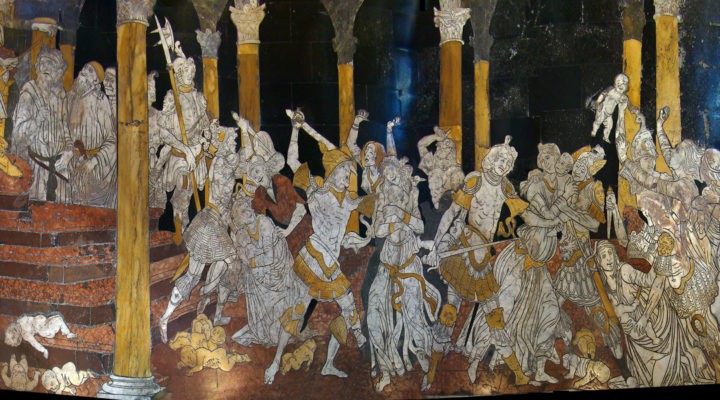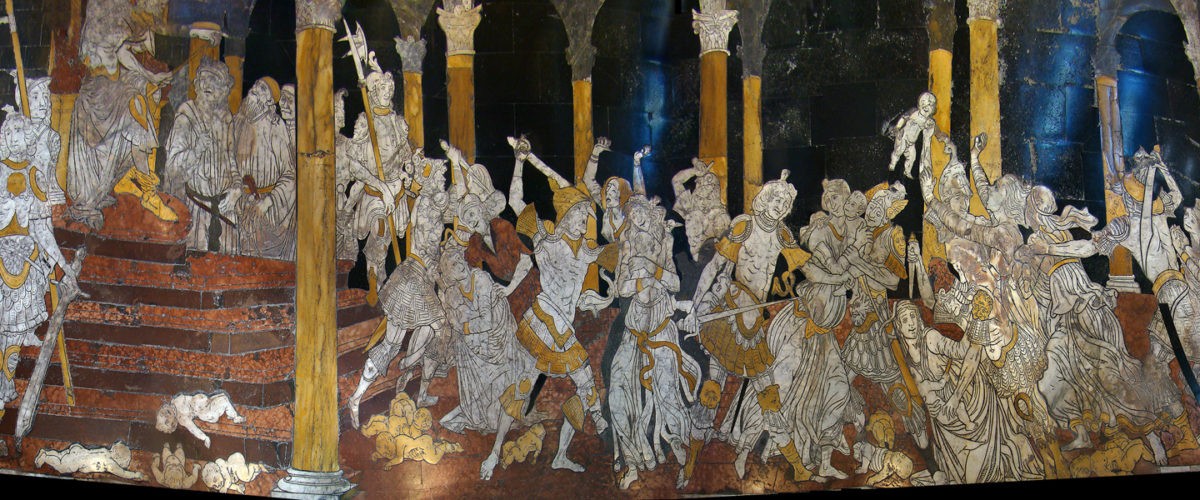In the days and verses after the Epiphany story, Herod goes on a campaign killing boys under the age of 2 in fear of losing his power. I imagine there were some in the region who could not believe that Herod, a tyrant who was known for being paranoid and violent, would do such a thing.
“This isn’t who we are!”
“How could he?”
 Of course, King Herod was scared. He heard the words “newborn king” and knew his days as tyrant were numbered. Herod did not have Twitter or a megaphone, but he had a military policing the streets that blindly followed orders.
Of course, King Herod was scared. He heard the words “newborn king” and knew his days as tyrant were numbered. Herod did not have Twitter or a megaphone, but he had a military policing the streets that blindly followed orders.
The events of Wednesday, Jan. 6, have left many in shock, some scared.
“This isn’t who we are!”
“We are better than this!”
“How could they?”
Much like Herod, the president told us exactly who he was, leaving nothing in the dark. Today, the frog finally cooked in the boiling water. So what then for the Christian or faith leader watching?
After years of tiptoeing around the administration, pastors who have kept their sermons subtle and safe must now ask, Will this Sunday’s sermon or church ways change? Or will we settle back into our platitudes after posting a prayer or Buechner quote on social media?
“Pastors who have kept their sermons subtle and safe must now ask, Will this Sunday’s sermon or church ways change?”
It is customary at my divinity school to bless the graduates at the last chapel service of the spring semester — sending us out into the world to proclaim the good news, to practice what we learned to preach, and to do so with integrity and authenticity.
I did not learn how to be a pastor during a coup. The commencement service for me and my classmates happened in the spring of 2015. Four months after the protests in Ferguson, in the midst of the protests and marches in Baltimore, and just as the Black Lives Matter movement was gaining traction.
We were looking for jobs, making the appropriate resume edits, ensuring our Facebook profiles were set on limited view as search committee members did further research. The suggested edit that stood out to me most was from well-intended pastors and leaders warning that siding and proclaiming Black Lives Matter was going to be too divisive for churches.
Two months later, Donald Trump announced he was running for president and did so telling us exactly who he was and the kind of president he was going to be.
As a Latina and daughter of an immigrant, Trump’s rhetoric hit close to home for me. He normalized anti-immigrant rhetoric, equating Central and South American immigrants to criminals. And it posed as foreshadowing for working in predominantly white Baptist churches for the next five years; learning to toe the line between divisive comments while trying to stay true to that good news I went into debt to learn about.
It turns out being civil and quiet didn’t work, as Trump won the election by way of American Christianity, thanks to many of us keeping our racism in the dark.
“Trump’s presidency has been a shadow in these first few years of my time as a pastor.”
Trump’s presidency has been a shadow in these first few years of my time as a pastor. I moved to Washington, D.C., three days before he was elected president, and each year I have witnessed how he has kept his promises, each time with praise from those who claim the same faith as I.
“This is not who we are!”
Oh, but it is.
Let us remember that this country was founded on stolen land and built by the hands and blood of enslaved people. A Constitution with Black and brown people not in mind does not change that foundation built on sand. I know it is hard for some to believe that this is happening, but believe it, siblings. White supremacy was threatened, so this is the response. It found a leader in Trump and was streamlined by conservative evangelicals and an American Christianity that has clung tightly to power.
Today, even amid the president’s poor attempt to send the rioters away, rioters raised a tall wooden cross in front of the Capitol that did not bring pride, but shame to me. Because that cross did not represent the liberating truth of a loving God, but of Christian nationalism that has so deeply hurt people of faith in America.
And so now we must bring to light the reckoning for Christians in this country. Even now as I write this, politicians speak from the floor of Congress asking, “Where do we go from here?” Alluding to Martin Luther King’s final speech. Where do we go from here, siblings?
“We must stop criminalizing Black grief and making light of white rage.”
This is not just the question for the moderate, but for the liberal Christian too. You who posted a black square in June and you who read one of the latest books about racism. We must stop criminalizing Black grief and making light of white rage. The difference is our Black siblings are dying and our white siblings are scared of losing power.
It is time to go deeper in understanding the grip white supremacy has on our faith both personally and corporately, and even then, go deeper still.
If the season of Advent was about making space for the coming of Christ, and if Christmastide was the season of joy for the coming of the liberator, then Epiphany is the day to shine a light on what cannot stay in the dark.
Alyssa Aldape serves as associate pastor at the First Baptist Church of the City of Washington, D.C.


